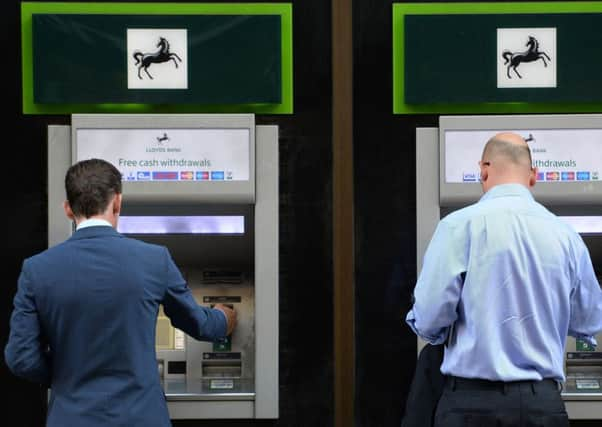Jeff Salway: Self-pitying bankers won't admit responsibility


It was about a survey of bankers in which more than half of respondents said it would take at least another decade before the public “really believe” the banks have changed their culture.
That’s probably true, but why? The ongoing fall-out from the crisis they caused? Their failure to accept responsibility for the PPI scandal? Ridiculous bonuses? Their general arrogance and sense of entitlement?
Advertisement
Hide AdAdvertisement
Hide AdNot according to comments left on the survey. Apparently the real reason we don’t trust the banks is “the constant trial by media, bad press and scaremongering that has left a bad taste in the mouth of the general public”.
Yep, that’ll be it. So obvious!
As it happens, the following day Lloyds Banking Group revealed it had made a 13th provision for PPI compensation. The additional £2.1 billion takes its total to £16bn and that for all banks to almost £36bn, with Royal Bank of Scotland, Santander and HSBC all setting aside yet more funds to cover mis-selling claims.
Their hope is these provisions will be the last, as the regulator will shortly impose a deadline on complaints that will likely take effect in spring 2017. The deadline will also trigger a new wave of PPI nuisance calls, as claims management companies squeeze the last out of the scandal they’ve exploited so successfully.
Almost £1 in every £4 paid out in PPI compensation between April 2011 and November 2015 has gone to claims firms, the National Audit Office (NAO) estimates. Those firms take 25 to 30 per cent of the redress paid to consumers, even though complaints can be taken free of charge to the Financial Ombudsman Service (and with the same chances of success).
But the success they have enjoyed is due primarily to the banks compounding their PPI crimes by failing to handle complaints properly.
How banks respond to customer complaints is a very effective measure of the industry culture. There’s been little sign over the past few years of any improvement here though, according to the NAO report, despite penalties including a £117m fine slapped on Lloyds last summer for mis-handling PPI complaints.
The NAO said there had been “no noticeable fall” over the past five years in the level of mis-selling complaints that are upheld by the FOS.
That self-pitying whine about scaremongering was in response to a survey by the Chartered Institute for Securities & Investment (CISI). This is the organisation whose chief executive last month insisted that “the banks really do get it. They know culture needs to change”.
Advertisement
Hide AdAdvertisement
Hide AdIn fairness to the CISI, it leads the way in seeking to raise standards and improving conduct in the banking sector. But it also notes that banks “seem reluctant to put themselves to the test” by subscribing to the ‘Investing In Integrity’ certification programme in which the CISI is a partner.
Almost eight years after the banking crisis and more than a decade after the PPI gravy train began to leave the rails, the banks still refuse to accept responsibility for their actions.